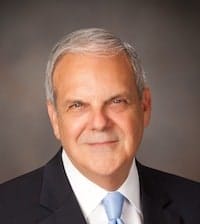By Nick Jacobs
Let me begin with a caveat. In this article there will be a proposed “beginning of a solution” that you’re going to read about but it is not in place yet. This article is a solicitation to help our elected officials know how much and why we need their support to make this happen. We need everyone to help make it a reality.
Many of us have been touched by the challenges presented from the COVID-19 epidemic, but it has wreaked special havoc on those with behavioral health challenges. Jena Hausmann, CEO of Children’s Hospital Aurora, Colorado, said in a recent article in Becker’s Hospital Review that her pediatric emergency and inpatient units are being “overrun with kids attempting suicide and suffering from other forms of major mental health illness.”There has been an increase of 90 percent in demand for behavioral health treatment.
Because of stress, isolation, and family challenges what might have been low-level anxiety and depression has become suicide attempts. When a poor diet, inactivity, lack of sleep, and challenging family relationships enter the picture, life can become too much to handle.
There are no easy fixes for this, but we are backing an opportunity to at least begin to address the issues before they become more serious.
In the United States, we depend on the police to respond to mental health emergencies. This requires an enormous amount of resources and can often result in a negative outcome for the victim and for the police. For example, in 2017, over 20% of police staff time was consumed responding to individuals with mental illness. The most disconcerting statistic is that people with mental illness that has not been treated are over 15 times more likely to be killed during police encounters with other citizens.
In 2020, Congress passed legislation that would create an easily remembered phone number that can be used for a mental health emergency, a three-digit mental health crisis line, 988 which is an easily remembered alternative number to 911. The problem is one that we are all too familiar with, funding. Every State needs to pass the necessary legislation to help ensure that a fully-funded crisis response system supporting 988 will be in place and operable.
This system would include call centers available 24/7, mobile response teams, and crisis stabilization services that connect patients to care.
The actual system will become available nationwide by July 2022, but this system will not be functional in Pennsylvania without your help. Advocates like you are needed to call or write your representatives to encourage them to enact this supportive legislation. It can’t and won’t happen without you.
Highlands Hospital is a well-recognized center for behavioral health treatment, but this effort to put a functional State-wide system in place takes more than the encouragement of one healthcare organization. It takes you, the public, to let your elected representatives know how important connectivity to 988 could be for you and your family, your friends, and your friends friends.
This is about saving lives, preventing broken hearts, and helping not only our caregivers but also our police. Please reach out to your elected official and ask them to support 988.
Nick Jacobs is a partner with Senior Management Resources, LLC, a senior leadership healthcare consulting firm. He is a co-founder of the Academy of Integrative Health and Medicine, former board member of the Integrative Health Policy Consortium. He was a former hospital CEO, founder of two genetic research institutes, and a Trustee at Southern California University of Health Sciences.
Throughout the year, our writers feature fresh, in-depth, and relevant information for our audience of 40,000+ healthcare leaders and professionals. As a healthcare business publication, we cover and cherish our relationship with the entire health care industry including administrators, nurses, physicians, physical therapists, pharmacists, and more. We cover a broad spectrum from hospitals to medical offices to outpatient services to eye surgery centers to university settings. We focus on rehabilitation, nursing homes, home care, hospice as well as men’s health, women’s heath, and pediatrics.









